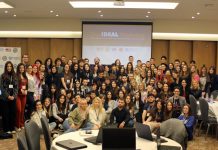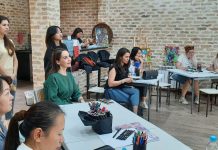ON YOUTH:
Do you know that nearly half (45 percent) of the world’s population is under 25 years of age? Do you know that today’s generation of 15–24 year olds is the most educated generation ever?
Out of the world’s one billion people aged 15–24, 85 percent live in developing countries. With such a situation, the strong statement by NGOs was needed at the World Youth Conference in Mexico to call for importance of youth role in achieving the MDGs.
ON DISABILITY (from my background text for the Council of Europe):
Disability is not an attribute of an individual, but rather a complex collection of conditions, many of which are created by the social environment.
International Classification of Functioning, Disability and Health (WHO)
Definitions of Disability
Probably the most commonly used definition of disability is that produced by the World Health Organization (WHO) in 2001, which set out the difference between the concepts of disability, impairment and handicap. In their understanding, the term ‘disability’ can be seen to apply to a complex system of economic and social constraints, imposed on people with impairments by the organization of society.
The different concepts were distinguished by the WHO as follows:
Impairment: Any loss or abnormality of psychological, physiological, or anatomical structure or function.
Disability: Any restriction or lack resulting from an impairment of ability, to perform an activity in the manner or within the range considered normal for a human being .
The term ‘handicap’ was also defined by the WHO, as any ‘disadvantage for a given individual, resulting from an impairment or disability…’ However the term handicap is no longer considered appropriate or in keeping with the contemporary understanding of disability or disabled people.
The UN Convention on the Rights of Persons with Disabilities (not yet in force) does not attempt a definition of disability, but does state in the preamble:
Recognizing that disability is an evolving concept and that disability results from the interaction between persons with impairments and attitudinal and environmental barriers that hinders their full and effective participation in society on an equal basis with others…
Today the position adopted by international organizations is that disability is a socially created problem and not merely an attribute of the individual. Having a disability is a consequence of a dynamic interaction between, on the one hand, a person’s health and other personal factors (such as age, sex, personality or level of education) and on the other, the social and physical environment in which they find themselves. Disability may refer to physical, intellectual, mental or sensory capacities.
Who is Disabled?
With such disagreement over what constitutes a disability, it is not surprising that the statistics on disability also differ widely. The WHO estimates that about 10% of the world’s population has some form of disability and that only about 5% of these disabilities are congenital. That gives us the startling figure of about 650 million people in the world living with some form of disability, and about 80 million in Europe alone. The disabled are sometimes referred to as the world’s largest minority, but unlike most minority groups, this one always has open membership – and any one of us could become a member at any time.
ON IFHOHYP:
IFHOHYP is the international non-governmental federation for national and regional youth organizations that are dedicated to hard of hearing young people throughout the world and is independent of sex, race, religion, nationality and politics. Our greatest priority is improving the quality of life of hard of hearing youth worldwide and promoting equal rights for hard of hearing young people at all levels of society. IFHOHYP specializes in meeting the changing needs of hard of hearing young people. We raise disability awareness on national and international level through activities run by and for hard of hearing young people aged from 18 to 35.
The work of IFHOHYP is carried out on three levels: political, awareness-raising, and educational providing personal and professional development opportunities for members. IFHOHYP is the only international youth and disability organization which is actively cooperating with the Council of Europe, an intergovernmental organization that works toward human rights, democracy and promoting cultural dialogue in Europe. IFHOHYP also works closely with an Advisory Council on Youth within the Council of Europe which is a statutory body comprised of 30 representatives that can affect the political agenda of the youth sector and other sectors of the Council of Europe. IFHOHYP is an associate member of the European Disability Forum and an observer member of the European Youth Forum.
IFHOHYP grew from 9-10 members in 2004 to 22 members in 2009 and expanded to more regions throughout the world. IFHOHYP joined global Partnership on Disability and Development and actively participated at the European Commission and the United Nations meetings concerning discrimination on the basis of disability. To read more about IFHOHYP, see www.ifhohyp.org






